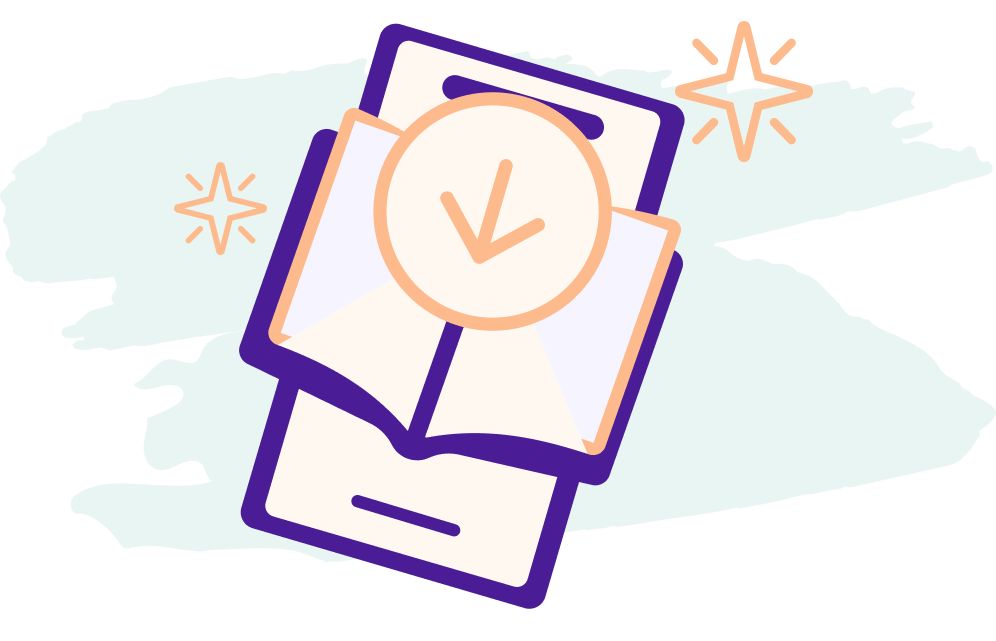Are you a first-time renter thinking about renting an apartment or house? Or are you already a renter but want to better manage your finances? It’s important to consider all the associated costs of renting so you know what to expect and don’t run short of cash.
While some costs like monthly rent are obvious, others are not. To avoid financial surprises, know which costs of renting you can expect upfront and which are recurring — and then make a monthly budget to stay on top of your expenses.
Typical costs of renting
Here are the most common costs of renting (besides monthly rent) to factor into your budget so you can be prepared and accurately forecast your monthly expenses.
Up-front costs
While the list of up-front costs may seem overwhelming, you can take comfort in the fact that they are just one-time charges. Below are six up-front fees you can expect when renting a new place.
1. Application fee
Submitted along with your rental application, this non-refundable fee is paid to either the management company or your landlord. The money goes towards conducting background and credit checks to determine your eligibility as a renter.
Average cost: $40 – $100
2. Security deposit
Once you’re accepted as a tenant, you’ll be asked to submit a security deposit — money used as proof of intent to move in and care for your rental. If there are any damages to your apartment at the end of your lease, landlords will deduct the cost of repairs or cleaning from your deposit. If your apartment remains in good condition, you can expect to receive your security deposit back in full approximately two months after vacating.
Average cost: One month’s rent
3. First and last month’s rent
After signing a lease, you may be asked to pay the first and last month’s rent up front. This covers your landlord in case you default or fall behind on your payments. For this charge and your security deposit, be sure to review your local tenant laws to confirm what’s allowed in your area, and if there are any limits to what landlords can charge up front.
Average cost: One or two months’ rent
4. Pet fee or deposit
If you have pets, many landlords charge an additional deposit. This payment is due at the start of your tenancy and used to cover any property damages to the rental caused by your pet, such as holes and scratches on the floor and walls, flea infestations, stains, or broken appliances. Pet fees are one-time, non-refundable charges, while pet deposits are treated like security deposits and must be returned at the end of the lease, less any expenses.
Average cost: $50 – $500
5. Elevator fee
If you’re moving into a large apartment building or condo complex, you may be required to pay an elevator fee to use the elevator on move-in day. Some management companies or landlords charge this fee for elevator access, while others require it to cover costs of efforts to prevent damages to the elevator or common spaces during the moving process.
Average cost: Up to $450
6. Moving costs
Whether you’re hiring movers or taking a DIY approach, there will be moving costs. Prepare for costs of movers, truck rentals, packing materials, storage if needed, and cash tips. Be sure to collect price quotes from movers ahead of time so you’ll know exactly how much to expect.
Average cost: Varies, but movers can cost between $400 – $3,000
Renters insurance
Renters insurance has many benefits and is relatively cost-effective. It protects your personal belongings in the event of damage or theft, and provides other liability coverage in case you or a guest gets hurt on the premises of your rental home. Many landlords require it and request proof of your policy when you sign your lease. If you do end up needing to file a claim during your lease, the amount covered will depend on the coverage you have and the type of damage incurred.
Average Cost: $15 per month
Utilities
Landlords typically require tenants to cover various utility costs in addition to monthly rent. For example, you may be responsible for electricity, gas, garbage, water and sewer, cable, and internet. Clarify what is and is not included so you can budget your expenses accurately. Be aware that some services may have an installation or start-of-service fee, for example, when your internet is set up for the first time.
Average cost: $150 – $250 per month
Home essentials
When moving into a new place, remember to account for the costs of cleaning supplies, furniture, curtains, parking, laundry, and storage. The initial cost of setting up your new home might be expensive, but once you’re settled in, your month-to-month charges for these items should settle down.
Average cost: Varies
4 tips for managing rental costs
The more prepared you are for the fees and costs of renting, the better off you’ll be. To stay on top of your costs, follow these five tips.
1. Create a budget and stick to it
Plan ahead and create a realistic budget. Budgeting is key to managing your one-time and recurring expenses so you know how much you’ll need to cover everything. Track your costs in a spreadsheet or online budgeting tool, and make adjustments as your needs change.
2. Build an emergency fund
Having a three-month buffer of savings for emergencies is good practice. If you can’t come up with that much to start, set a goal of building at least a one-month buffer and work your way up from there by setting funds aside each month. This way, if your employment status changes or unexpected expenses pop up, you’ll have some money stashed away.
3. Try the 50/30/20 rule
Following the 50/30/20 rule, you set aside 50% of your post-tax income for needs, reserve 30% for things you want, and put the other 20% into a savings account. The philosophy is that once your essentials are covered, it’s easier to avoid overspending and you can still put away some money for your savings. This proven budgeting method provides the assurance that all of your bases are covered.
4. Use a rent payment platform
If you find it tedious to keep track of all your rent payments manually, consider using a free platform like Azibo. With Azibo, you can:
- Pay rent online using flexible payment methods (e.g., bank transfer, debit card, credit card)
- Automate your monthly rent payments
- View your rent payment history
- Choose from affordable renters insurance options
- Improve your credit score with Azibo Credit Boost
Ready to sign up? Start using Azibo today.
Get your free 'Renter's Insider Kit' for expert insights and trends on stress-free renting

Get your free 'Renter's Insider Kit' for expert insights and trends on stress-free renting



Whether you’re a property owner, renter, property manager, or real estate agent, gain valuable insights, advice, and updates by joining our newsletter.



























